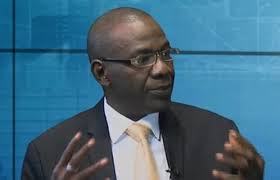Nigeria’s currency, the Naira, depreciated against the US dollar in its exchange rate at the parallel market on Thursday, settling at an average exchange rate of N749/$1 and representing a 0.13% decrease compared to its previous day’s exchange rate at N748/$1.
Some black market FX dealers in the Federal Capital Territory (FCT) attributed the declining exchange value of the Naira partly to increase in demand for dollars by importers.
However, the Naira remained steady against the Euro during the trading session on Thursday, maintaining its average rate of N815/€1, the same rate it traded on Wednesday.
The local currency sustained a rebounding momentum in its exchange rate against the British Pound Sterling at the unofficial market, appreciating by a 0.42% to trade at an average of N946/£1, compared to the N950/£1 it traded the previous day.
Again, the Naira still moderated in its exchange rate at the cryptocurrency Peer-to-Peer (P-2-P) Exchange market, trading at a minimum of N764.40/$1 on Thursday, reflecting a 1.28% depreciation from the N754.75/$1 it exchange at during the previous day’s trading session.
It would be recalled opened the year at an average exchange rate of N736/$1 in the parallel market, recorded its strongest exchange rate at N775/$1 on 20th February 2023 and its lowest exchange value at N730/$1 on 5th January 2023.
Over the past years, the Central Bank of Nigeria (CBN) has been supporting both the parallel and official window FX markets with FX as part of its monetary policy measures to achieve some stability in the local currency’s exchange rate against major foreign currencies.
However, the apex bank stopped FX supply to the parallel market in March 2020 over FX round-tripping and other abuses by the BDC dealers and has yet to resume supply to the unofficial FX market.






